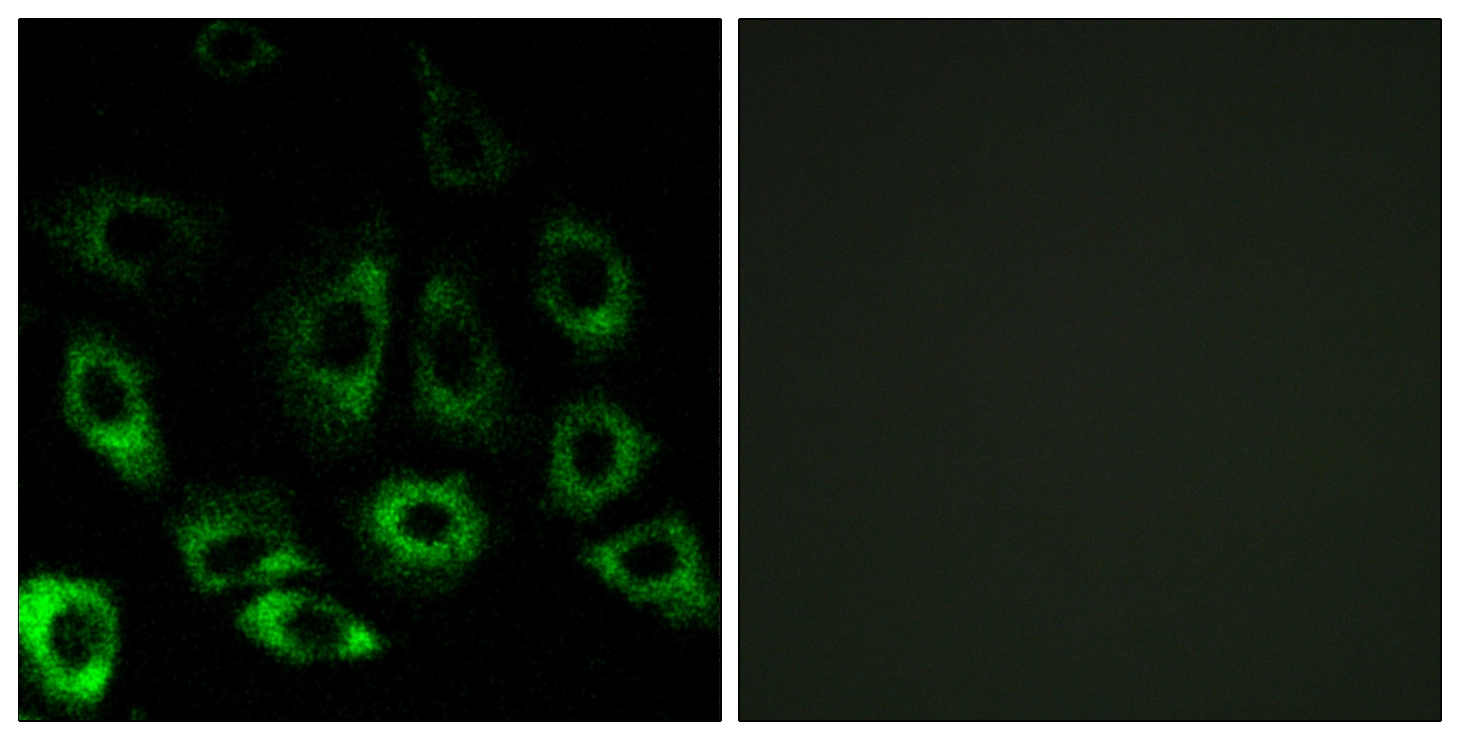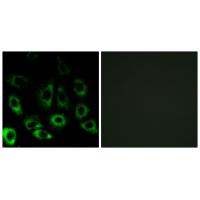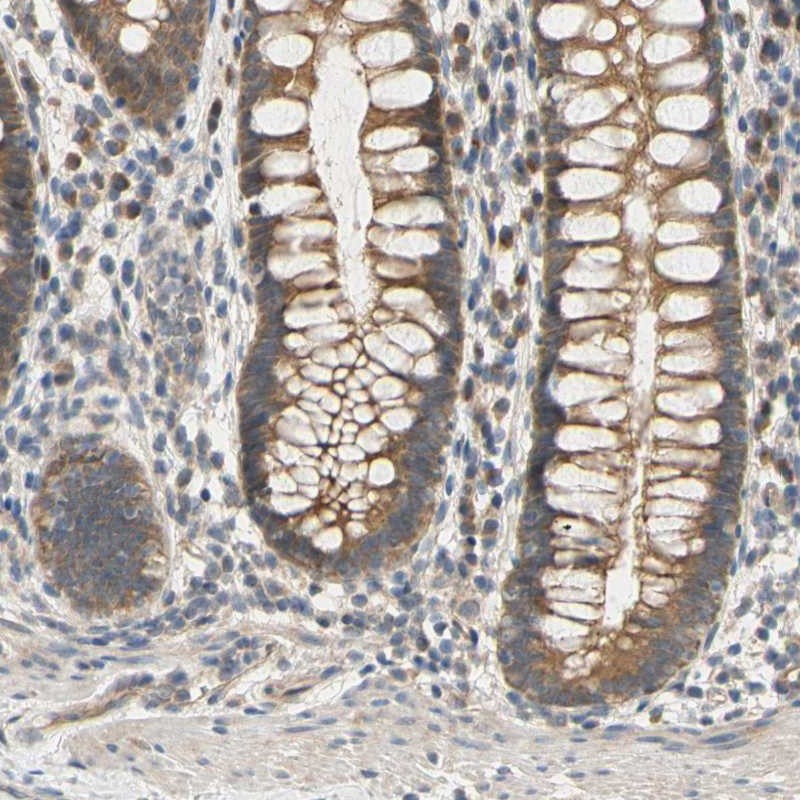
ICC/IF analysis of A549 cells using GTX86983 MBTPS2 antibody. The picture on the right is blocked with the synthesized peptide.
MBTPS2 antibody
GTX86983
ApplicationsImmunoFluorescence, ImmunoCytoChemistry
Product group Antibodies
ReactivityHuman
TargetMBTPS2
Overview
- SupplierGeneTex
- Product NameMBTPS2 antibody
- Delivery Days Customer9
- Application Supplier NoteICC/IF: 1:100~1:500. *Optimal dilutions/concentrations should be determined by the researcher.Not tested in other applications.
- ApplicationsImmunoFluorescence, ImmunoCytoChemistry
- CertificationResearch Use Only
- ClonalityPolyclonal
- ConjugateUnconjugated
- Gene ID51360
- Target nameMBTPS2
- Target descriptionmembrane bound transcription factor peptidase, site 2
- Target synonymsBRESEK, IFAP, KFSD, KFSDX, OI19, OLMSX, S2P, membrane-bound transcription factor site-2 protease, SREBPs intramembrane protease, endopeptidase S2P, keratosis follicularis spinulosa decalvans, membrane-bound transcription factor protease, site 2, site-2 protease, sterol regulatory element-binding proteins intramembrane protease
- HostRabbit
- IsotypeIgG
- Protein IDO43462
- Protein NameMembrane-bound transcription factor site-2 protease
- Scientific DescriptionThis gene encodes a intramembrane zinc metalloprotease, which is essential in development. This protease functions in the signal protein activation involved in sterol control of transcription and the ER stress response. Mutations in this gene have been associated with ichthyosis follicularis with atrichia and photophobia (IFAP syndrome); IFAP syndrome has been quantitatively linked to a reduction in cholesterol homeostasis and ER stress response.[provided by RefSeq, Aug 2009]
- ReactivityHuman
- Storage Instruction-20°C or -80°C,2°C to 8°C
- UNSPSC41116161




